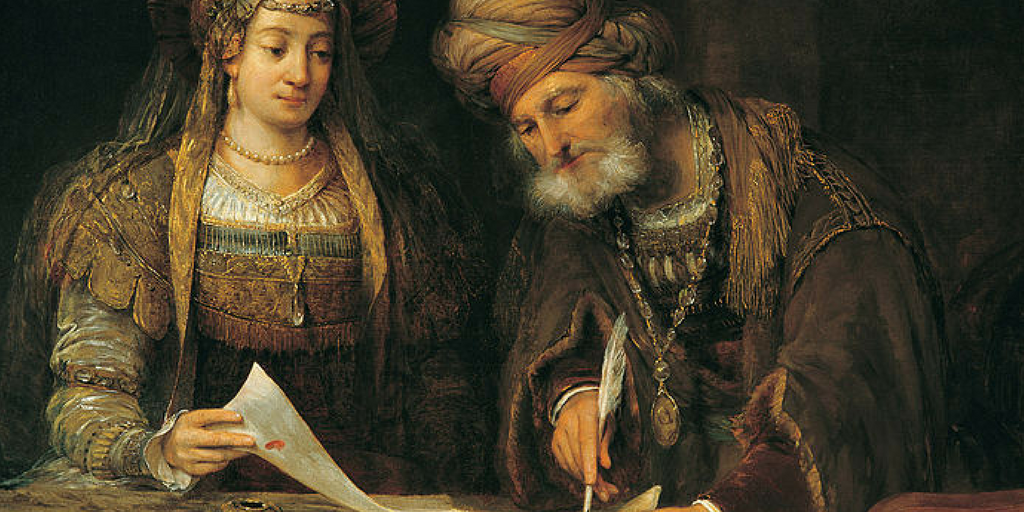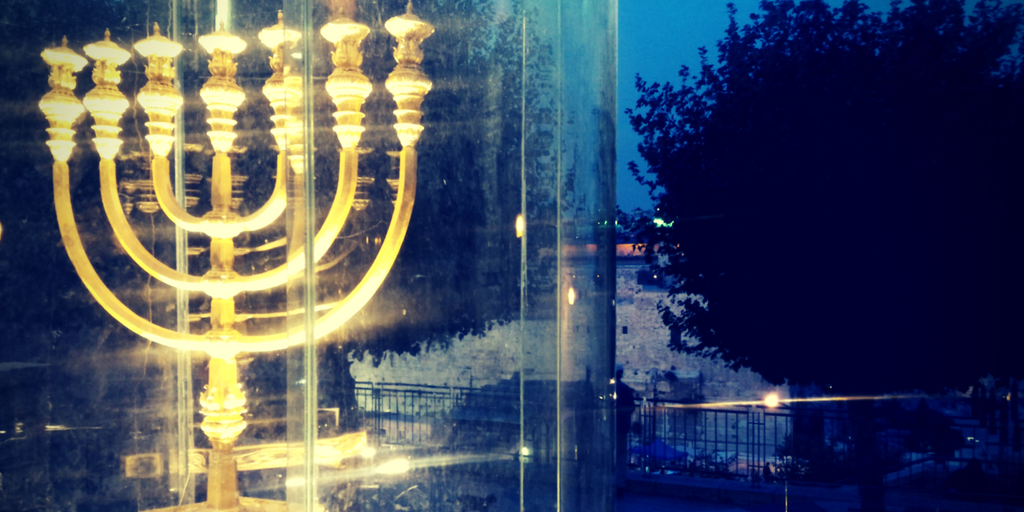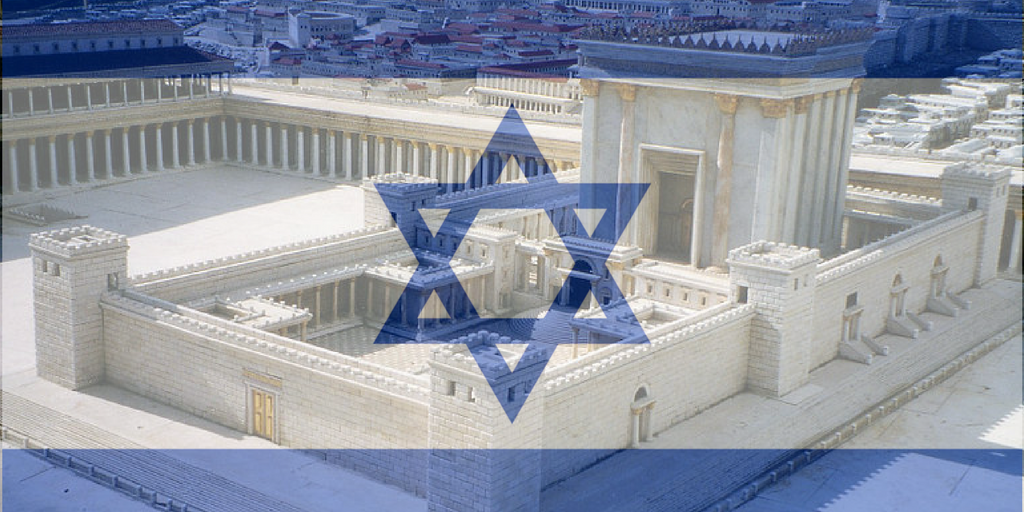Throughout the entire Scroll of ESTHER, G-D’s Name does not appear even once. Upon a casual reading, it would seem that Haman, Aḥashverosh, Mordekhai and Esther are fully responsible for the incidents taking place. Intrigue, human jealousies and political machinations all account for the twists and turns within the Megillah as events of great significance to the Jewish people unfold.
After completing the Megillah, however, it becomes clear that the juxtaposition of all the coincidences is nothing short of miraculous, as HaShem’s authorship becomes visible through the thin veil of history. It is important to note that the story took place over a period spanning roughly ten years. Aḥashverosh’s party took place in 3395, Haman drew the lots in 3404 and Israel won our victory in 3405 (dates according toSeder HaDorot). Living through that period, one would probably not have noticed anything extraordinary taking place as everything was unfolding according to a natural progression of political events. There was nothing especially supernatural about the series of occurrences we retroactively understand to have been miraculous.
Our Sages teach in the Jerusalem Talmud (Brakhot 1:1) that the Purim story serves as a model for understanding the process of Israel’s ultimate redemption. Through the epic story of mankind, the Kadosh Barukh Hu weaves the goal of Creation. When making the effort to closely examine our own times from a more holistic perspective, we can see HaShem orchestrating the historic events – large and small – that have brought the Jewish people back to our borders and are bringing the world ever closer to perfection.
We celebrate Purim today with great joy because we are familiar with the story’s happy conclusion. But the Hebrews of ancient Persia – who actually lived through the events – must have been terrified at the threat of state-sanctioned annihilation. And Mordekhai, who the Jewish people now praise as a national hero, was actually much less appreciated in his own generation. A superficial reading of ESTHER can even lead one to attribute Mordekhai blame for placing his people in such a dire situation.
“All the king’s servants at the king’s gate would bow down and prostrate themselves before Haman, for so had the king commanded concerning him. But Mordekhai would not bow and would not prostrate himself.” (ESTHER 3:2)
The rabbinic leadership of Shushan at the time strongly condemned Mordekhai’s refusal to kneel before Haman. Comfortable with life on foreign soil, they feared Mordekhai might provoke Persian Jew-hatred and spoil their enjoyable Diaspora existence. But Mordekhai could not bow down to Haman, who had either engraved the image of an idol on his robes (Ibn Ezra) or attributed to himself the powers of a deity (Rashi). Because it is known that the Torah requires one to die rather than bow down to a false god, the condemnation of Mordekhai seems somewhat unjustified.
In Ohr Ḥadash, the Maharal of Prague clarifies the rabbinic position by explaining that Mordekhai went out of his way to appear before Haman in order to purposefully demonstrate that he would not kneel, thus creating an otherwise avoidable confrontation. The Sages record how the Jews of Persia reacted.
“They said to Mordekhai, ‘Know that you are putting us at the mercy of that evil man’s sword!’” (Agadat Esther 3:2; Megillah 12:2, commentary of the Radvaz)
“So the king’s servants who were at the king’s gate said to Mordekhai, ‘Why do you disobey the king’s command?’ Finally, when they said this to him day after day and he did not heed them, they told Haman, to see whether Mordekhai’s words would avail; for he had told them that he was a Jew.” (ESTHER 3:3-4)
A close reading of the Megillah reveals that Mordekhai’s refusal to kneel before Haman was not an isolated occurrence. Rather, he had gone out of his way several times in order to walk near the minister and publicly antagonize him. Because Mordekhai could have easily avoided the situation but instead engaged in actions that were deliberately confrontational, Shushan’s Jewish leaders seem justified in their condemnation.
Even when Mordekhai saw that “Haman was filled with wrath” (ESTHER 3:5), he continued to intentionally provoke the king’s viceroy. Based on his actions and the Talmud’s teaching (Pesaḥim 64b) that a person is forbidden from relying on miracles, one could easily argue that Mordekhai behaved irresponsibly with the lives of his people. The Maharal, however, defends Mordekhai’s behavior by asserting that challenging Israel’s enemies ultimately leads to the full manifestation of HaShem’s Ideal for this world.
The Midrash recounts that Mordekhai explained to Haman that the reason he would not bow was that he was born of kings from the tribe of Binyamin. Haman countered, “But Yaakov, Binyamin’s father, bowed before Esav, my ancestor.” Mordekhai answered him in turn, “Yes, but that was before Binyamin was born. He was born in Eretz Yisrael, and his soul, therefore, was an elevated soul. He would not bow down before others.” (Esther Rabbah 7:9)
Rabbi Yaakov Moshe Ḥarlop – a leading student of Rabbi Avraham Yitzḥak HaKohen Kook – explains in the sixth volume of Mei Marom (based on teachings from the holyZohar) that subordination to gentile rulers is a form of idolatry. Israel must trust completely in the Kadosh Barukh Hu, who controls and directs all historic events. To fear foreign nations is to reject HaShem’s supremacy and a terrible desecration of His Divine Ideal.
The Talmud (Brakhot 7b) discusses whether appeasement or confrontation is the proper course of action when dealing with gentile antagonism towards Israel. While Rabbi Shimon bar Yoḥai – who himself resisted the Roman oppressors of his generation – teaches that it is acceptable to antagonize and provoke the wicked, the Talmud concludes that not everyone is capable of following this position. Only a person whose motivation is purely for the sake of heaven can allow himself to take such dangerous risks.
Mordekhai refused to humble himself before Haman, arguing that Hebrews must stand strong in the face of aggression. The rabbinic leadership of Shushan agreed with Mordekhai in principle but felt that in order to display such courage, the Jews had to first feel internally strong. Mordekhai rejected the notion that his people were weak and instead recognized Israel’s true inner potential. He argued that even if Jews first need to feel internal strength before being able to stand against Haman, that strength will never come while they remain on their knees. In fact, bowing to tyrants is precisely what leads people to mistakenly believe they lack the power to assert their rights. Haman was already seeking an excuse to destroy Israel and demands for submission could easily lead to further oppression. Appeasing evil, according to Mordekhai’s logic, would only succeed in encouraging further evil.
As HaShem’s chosen people and national expression in this world, Israel must realize our own inner strength. When the Persians came to destroy the Jews, Mordekhai led our people into battle and prevailed. The actual decree to annihilate Israel had not been rescinded and the Jews were required to take up arms against our enemies. At that point, Israel realized our true inner might by taking the initiative and killing 75,800 Persians without losing even a single Hebrew life. The message is clear for every generation. Israel must demonstrate confidence in ourselves and an iron determination to defy our oppressors. Mordekhai teaches that it is not through appeasement that one achieves peace but rather through the courage, self-assurance and unbreakableEmunah that empowers us to resist the malevolent plans of our antagonists.






